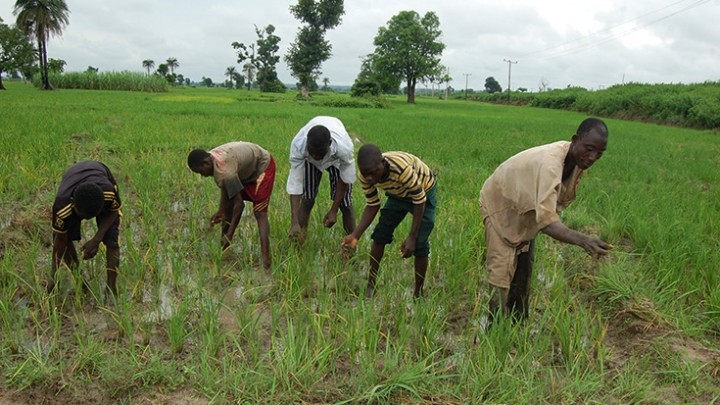Mr Ibrahim Alkali, Project Desk Officer, FADAMA III Additional Financing (AFII) project, says states in the North East need more intervention programmes to restore agricultural production in the region.

Alkali said this in an interview with News Agency of Nigeria (NAN) in Abuja on Wednesday, November 1, 2017.
He said that the Internally Displaced Persons (IDPs) in the North East needed more interventions, which the FADAMA AF II programme alone could not provide.
He said that the programme only targeted 24,000 persons, out of the millions of people who were displaced due to the insurgency.
“This figure, 24,000, is just a small portion. The demand is high; we are hoping that the Federal Government will reach out to the World Bank to provide more funds to restore the livelihoods of the IDPs.
“Looking at the North East generally, their main source of livelihood is agriculture but the people have been devastated because of the insurgency; they have lost all their belongings.
“Some have returned home and some still live in camps; they are helpless. I think it very important for the government to reach out to donor agencies to seek more funds for the people’s rehabilitation,’’ he said.
Alkali, however, noted that in the area of agricultural intervention, the FADAMA programme had performed creditably in the country.
“We have advantages because the FADAMA programme has existed for some decades; our experience and structures, from national to community levels, have been beneficial in the project implementation across the country,’’ he said.
Alkali said that the FADAMA III AF II package, which was specifically designed for the North East, was a complete package that covered all aspects, including livelihoods restoration, training, advisory services and environmental concerns.
“We provide food assistance for the people so as to make them to maintain the agriculture support given to them because you cannot support them without providing the food they can eat for them.
“We also provide social amenities for some of the communities in order to make life easier for them and make the project implementation more effective,’’ he said.
Alkali said that the National FADAMA Programme Office had just signed a Memorandum of Understanding (MoU) with the World Food Programme (WFP) to boost food production and people’s livelihoods in Borno.
“This is the first time that FADAMA is intervening in an emergency situation; the WFP has been in that sector for long and has recorded great results.
“For us to be fulfilled, we need an international agency to assess our performance.
“The one-million-dollar pilot project would be executed in Maiduguri Metropolitan Council (MMC) and Jere Local Government Area; and its target is to reach 7,500 households,’’ he said.
Alkali said that the main objective of the project was to enhance income generating businesses in the neighbourhoods via the provision of start-up capital and skills strengthening schemes.
“I believe that the collaboration will also improve the beneficiaries’ access to food and community assets, with a positive impact on food security and nutrition.
“We are doing that purposely to work with experts; the project will also serve as a training opportunity for our staff, as they would be able to gain experience and learn from the approach of WFP to such interventions,’’ he said.
By Kudirat Musa
